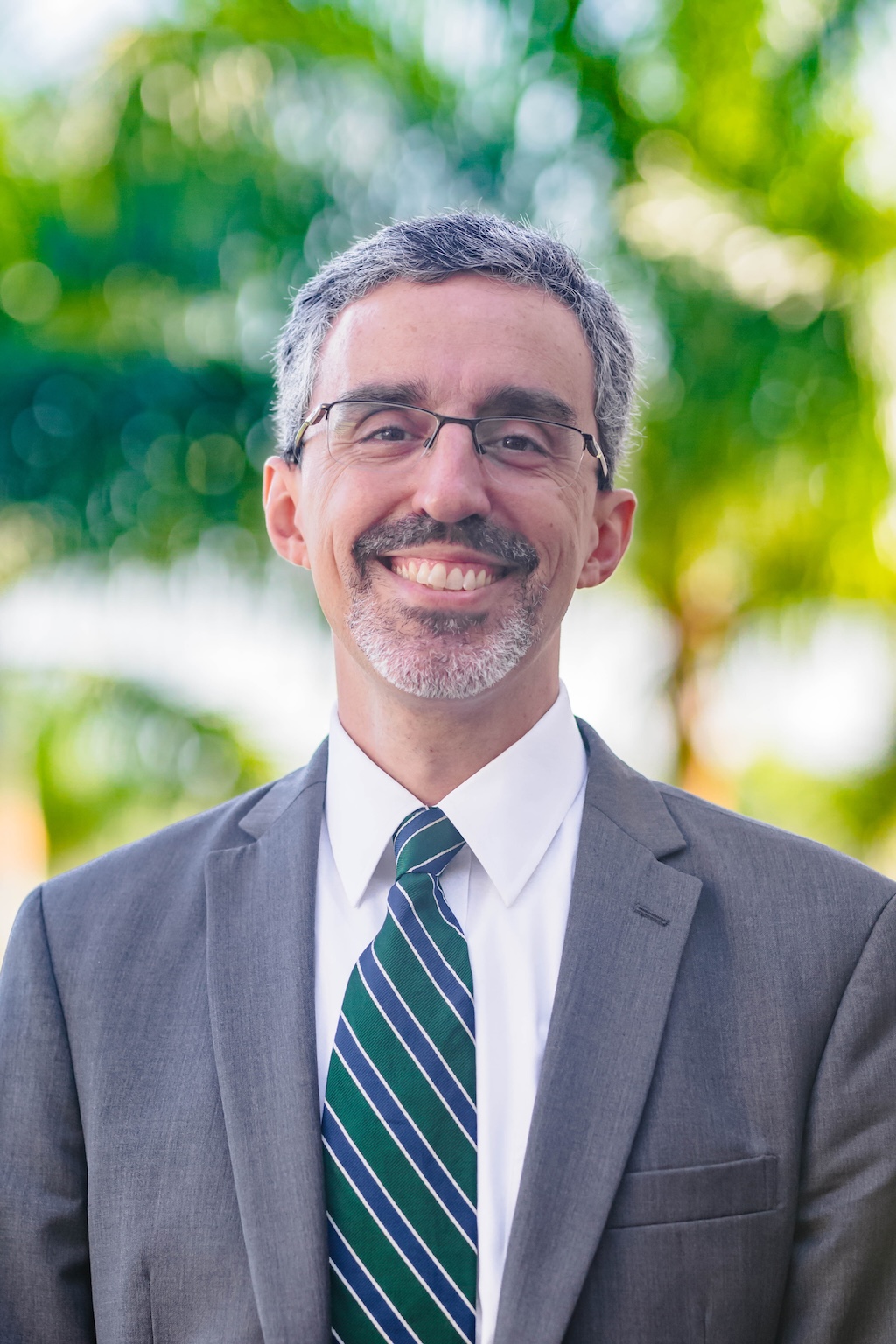
A flexible, fully online dual enrollment program that allows Chesterton Academy students to earn transferable college credit through an authentically Catholic university.
Cost
Credits
Online
Material Fees
Questions? Please contact the Office of Admissions at admissions@avemaria.edu or (239) 280-2500

Doctor of Philosophy in Economics: University of Notre Dame
Master of Arts in Educational Technology Leadership: George Washington University
Dr. Gabriel X. Martinez has served on the Ave Maria University faculty since 2002 and brings extensive experience in both traditional and online instruction. He currently directs the University’s Online Education initiatives, and his work in teaching innovation has appeared in the International Review of Economics Education. A committed Catholic educator, he integrates Catholic Social Teaching throughout the course. Dr. Martinez lives in Ave Maria, Florida, with his wife and six children.
Format: Fully online, asynchronous
Credits: 4 Credits
Time Commitment: 3 hours per week
Only $600 for a four-credit course—a significant discount from standard tuition of $1,322/credit hour.

Only $600 for a four-credit course—a significant discount from standard tuition of $1,322/credit hour.

Only $600 for a four-credit course—a significant discount from standard tuition of $1,322/credit hour.
Junior and seniors enrolled in a Chesterton Academy with a minimum GPA of 3.2 on a four point scale. Students may not take more than one Ave Maria University course per semester prior to graduation from high school, or more than four courses total. Students must earn a final grade of C or better to remain eligible for future courses.
Yes. We will send regular reports and we will allow you to enter the learning management system to keep track of your student.
Yes: four credits at Ave Maria University.
Yes. Microeconomics is taught at practically every institution of higher learning. You will cover a standard curriculum. Ave Maria University is accredited by SACS-COC, practically guaranteeing transferability.
3 hours, on average.
Zero. It will all be provided by the instructor.
Through instructor-provided videos with in-video mini-quizzes, textbook written by the instructor (which students annotate), regular learning checks, three quizzes, three tests, and short essays applying what they learn to a business firm of their choosing.
No. To accommodate a variety of schedules, the course is taught fully online in an asynchronous manner. Students are free to access the course content and complete the assignments at any time during the day.
When the course is taught face-to-face, it meets three times a week.
Students will be assigned to a student support advisor who will monitor their progress and attendance. The professor responds to emails within 24 hours and offers evening office hours by appointment. Parents or guardians will be contacted if students fall behind.
At every opportunity, the course highlights the connections (and disconnections) of microeconomics with Catholic social teaching. For example, it points out that utility maximization is not the goal of a complete life; it summarizes Thomas Aquinas’s teaching on private property; it demonstrates the value of the life-long marriage contract using game theory; it shows how the concept of efficiency, central to economics, overlaps but contrasts with John Paul II’s teaching in Centesimus Annus; and it highlights how the “market” for human work is quite different from other markets. That said, this is not a course in Catholic social teaching. It is a course in microeconomics, and the credits transfer to nearly every accredited college or university in North America.
5050 Ave Maria Blvd., Ave Maria, FL 34142